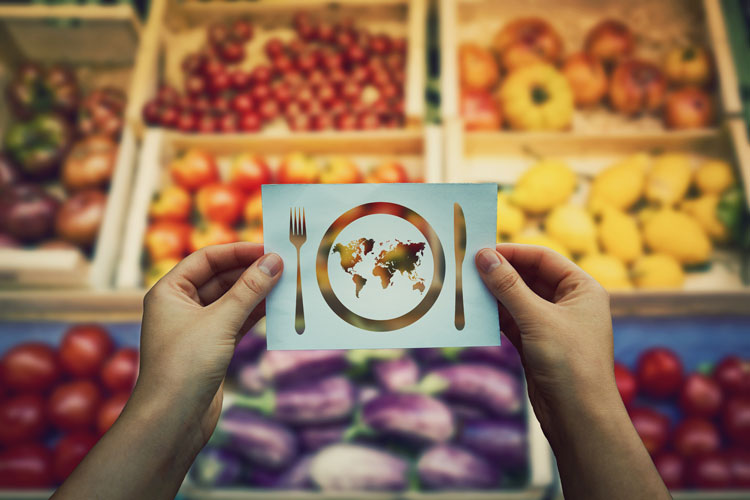
Even before there was a pandemic to worry about, the next generation of farmers and the next generation of consumers had similar concerns on their minds — ones about the future of our food systems. The good news, though, is that both groups are motivated to work together to solve these issues.
Last year, Corteva Agriscience interviewed farmers and nonfarmers, ages 16 to 38, from five top economies: Brazil, China, France, Russia, and the U.S. Their views on the global food system were similarly aligned in the fact that they thought, without some intervention, food and farming will face shortages in the coming years.
The biggest threat
Over half of each group believes climate change will have a negative impact on global food supply in the next 20 years, mostly due to fossil fuel burning and deforestation. Farmers are most concerned about new destructive diseases and disruptions to the crop-growing cycle, while consumers worry that, if those production threats are realized, food prices will rise. Similarly, the majority of farmers and consumers expressed concern that we won’t have enough natural resources to grow the food we need.
As a consequence, 80% of consumers estimated that it will be harder for farmers to make a living in the future. Eighty-one percent of farmers agreed.
We’re not alone
These challenges have almost certainly crossed the minds of farmers around the world, and with an aging farming community, solving these concerns among so many others can seem overwhelming or even unattainable. Efficiencies continue to improve, but we are sure to need more. How can it be done?
Securing the future of food and farms was the top priority for consumers and farmers. Both groups said that in order to do so, we need:
- Ingenuity and compromise
- Innovative new technologies and methods that may not exist yet for farmers to use
- A larger voice for young producers and consumers
- More collaboration between young producers and consumers. Ninety-one percent of next-generation consumers believe they need to be more involved in how their food is farmed.
Sustainability is a huge topic to handle, but the agriculture community will not have to face it alone. Keeping our world healthy and productive is important to all citizens, and facilitating communication and innovation between all aspects of the supply chain will be vital in adopting practices that meet the needs of a changing food world.
The gap might not be as large as it sometimes feels.








